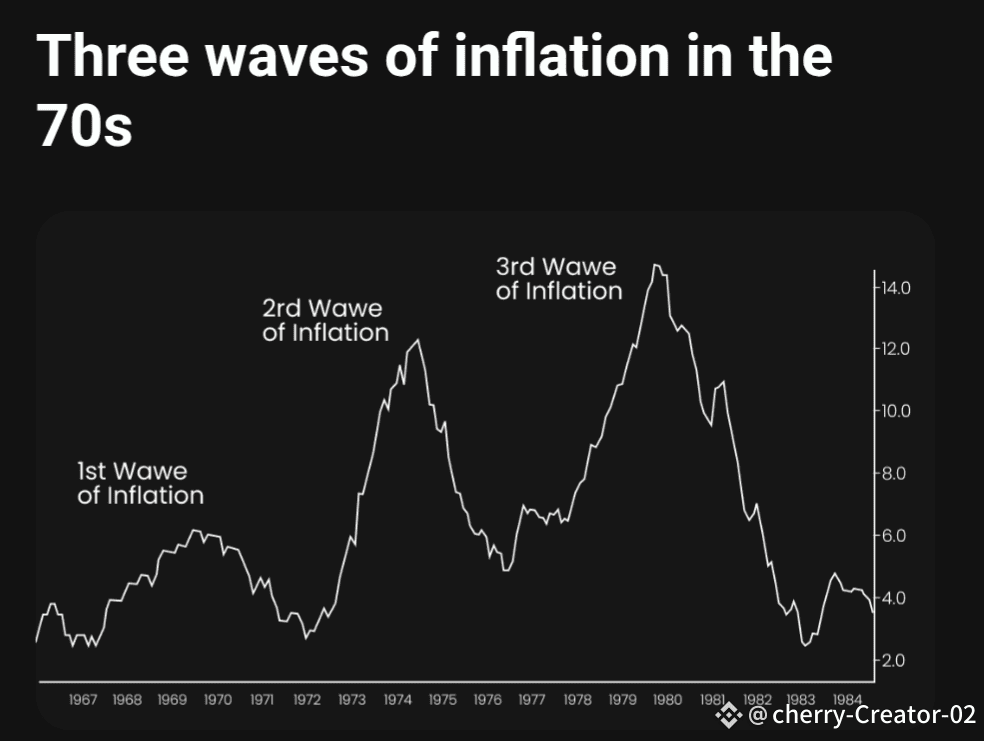Do you think inflation is the most critical indicator of economic health?
Now that we see prolonged inflation in the United States and growing geopolitical instability, many question whether the inflationary waves of the 70s will repeat. Let’s discuss how this can impact your trading decisions.

Wave 1
In the Bretton Woods System, the US dollar was tied to gold. Foreign governments could convert dollars into gold at a fixed rate ($35/oz). However, the Vietnam War and domestic programs pushed the US debt up and made this arrangement unsustainable. So, in 1971, President Nixon ended the Bretton Woods System.
• The US could print money without needing gold reserves to back it.
• The Federal Reserve kept interest rates too low, hoping to support employment and economic growth.
• The economy was flooded with cheap money, fueling demand.
• Demand-pull inflation started to build.
Wave 2
1973: After the Yom Kippur War, Arab members of OPEC imposed an oil embargo on the US and other countries that supported Israel. Oil prices quadrupled in months.
1979: The Iranian Revolution disrupted the oil supply, and prices doubled.
The surge in oil prices triggered cost-push inflation, and rising production costs were passed on to consumers.
Wave 3
In the late 70’s, the country experienced another economic shock:
• The Vietnam War and its consequences caused a massive military effort, primarily financed by debt and money creation, not tax hikes.
• Lyndon B. Johnson’s Great Society set of domestic programs expanded public spending.
By the late 70s, inflation was deeply embedded. Only aggressive interest rate hikes by the Fed in the early 80s finally broke it.
Why are we looking for parallels today?
True, the macroeconomic environment has changed profoundly since the 70s, but some structural parallels remain striking.
• Post-COVID supply disruption and persistent geopolitical tensions caused a sharp rise in inflation, which peaked in 2022.
• While price pressures have since eased, risks remain, especially if energy costs spike again due to the Middle East conflicts or if central banks cut rates prematurely.
• Trump’s renewed tariffs could reignite inflationary pressures, potentially building a foundation for a second wave of inflation
